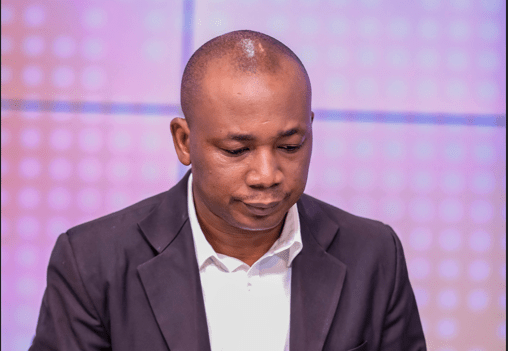Professor Godfred Bokpin’s critique of Ghana’s economic outlook underscores a fundamental challenge: the nation’s chronic inability to sustain macroeconomic stability. This persistent volatility, characterized by cyclical periods of growth followed by instability, casts a long shadow over Ghana’s future economic prospects and dampens investor confidence. While acknowledging the potential for relative stability in the short-term, perhaps until 2026, Prof. Bokpin raises a crucial question: What happens after the current IMF program concludes? This uncertainty, he argues, is a major deterrent for businesses and investors seeking to make long-term commitments in the Ghanaian economy. The absence of a clear, credible roadmap for the post-IMF period creates significant risks and discourages the vital long-term investments needed for sustainable economic transformation.
The core of Ghana’s economic dilemma, according to Prof. Bokpin, lies in its historical pattern of fiscal indiscipline. He warns that the tendency towards reckless spending often resurfaces once the oversight of international programs like the IMF is lifted. This cyclical pattern of fiscal mismanagement has repeatedly eroded previous economic gains, leading to recurring financial crises and reinforcing the perception of instability. This historical precedent raises serious doubts about Ghana’s ability to maintain fiscal prudence beyond the timeframe of the current IMF program, further fueling investor concerns. The lack of a concrete plan for sustaining macroeconomic stability beyond 2026 undermines confidence and discourages the long-term investments necessary for robust economic growth.
For businesses contemplating long-term investments in Ghana, the uncertainty surrounding the post-IMF period presents a significant red flag. The absence of a clear strategy for maintaining macroeconomic stability creates a risky environment for businesses making long-term commitments. This uncertainty makes it difficult for businesses to accurately assess risks and make informed investment decisions. Consequently, potential investors may be hesitant to commit resources to projects with extended time horizons, hindering Ghana’s ability to attract the long-term investments needed for sustainable economic development. The current situation necessitates a clear articulation of Ghana’s long-term economic vision and the policies that will underpin its sustained stability.
Prof. Bokpin’s concerns highlight the need for structural reforms that go beyond short-term fixes. He emphasizes that addressing Ghana’s economic challenges requires more than just adherence to the current IMF program. True, lasting stability requires deep, structural changes that address the root causes of fiscal indiscipline and promote sustainable economic management. These reforms should focus on strengthening institutions, improving governance, and promoting fiscal transparency and accountability. Without such fundamental reforms, Ghana risks repeating the cycle of instability and jeopardizing its long-term economic prospects.
The implications of Prof. Bokpin’s analysis are far-reaching. Without a credible plan for maintaining macroeconomic stability beyond 2026, Ghana risks losing out on crucial long-term investments. This could further exacerbate the country’s economic challenges and hinder its ability to achieve sustainable development. The uncertainty surrounding the post-IMF period creates an environment of risk aversion, discouraging businesses and investors from making the long-term commitments necessary for driving economic growth and creating jobs. Therefore, it is essential for Ghana to articulate a clear, long-term economic vision that inspires confidence and attracts the investments needed for sustained prosperity.
In conclusion, Prof. Bokpin’s cautionary message underscores the urgency of addressing Ghana’s structural economic challenges. While the current IMF program offers a short-term path to stability, it is not a panacea. Sustained economic growth and investor confidence require a commitment to deep structural reforms that address the root causes of fiscal indiscipline and promote responsible economic management. The critical question of “What happens after 2026?” must be answered with a clear and credible roadmap for the future. This roadmap should outline the policies and strategies that will ensure long-term macroeconomic stability, attract investment, and pave the way for sustainable economic development. Without such a plan, Ghana risks perpetuating the cycle of instability, jeopardizing its future economic prospects, and undermining the potential for long-term prosperity.














